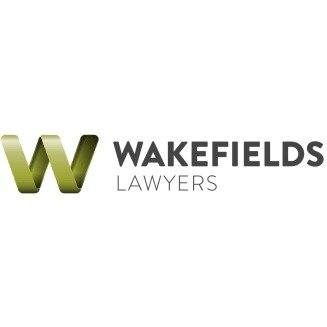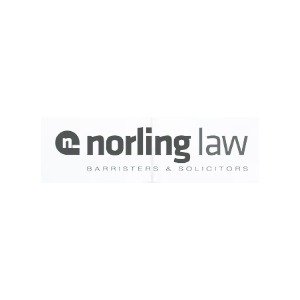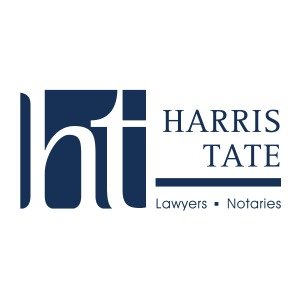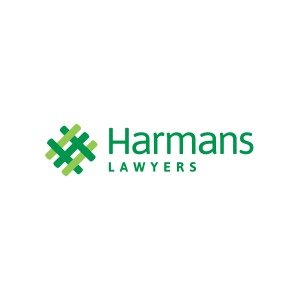Best Debt & Collection Lawyers in New Zealand
Share your needs with us, get contacted by law firms.
Free. Takes 2 min.
Or refine your search by selecting a city:
List of the best lawyers in New Zealand
About Debt & Collection Law in New Zealand
Debt & Collection Law in New Zealand refers to the legal framework governing the process by which creditors recover debts from individuals or businesses. It encompasses a range of statutes and regulations aimed at ensuring fair practices in the collection of debts while protecting debtors from harassment or unlawful actions by collectors. The law provides guidelines for how debts should be pursued and recovered, establishing the rights and responsibilities of both creditors and debtors.
Why You May Need a Lawyer
There are several scenarios in which individuals or businesses in New Zealand might require legal advice concerning debt and collection:
- You are facing legal action from a creditor or collection agency for an unpaid debt.
- You believe a creditor or collector is harassing you or otherwise violating your rights.
- You need assistance negotiating a debt settlement or creating a repayment plan.
- You require help understanding the terms of a loan or credit agreement.
- Your circumstances have changed, affecting your ability to repay debt, and you need to explore alternatives such as bankruptcy or a No Asset Procedure.
- Your business is involved in the recovery of debts from customers or other businesses.
Local Laws Overview
Several key pieces of legislation and regulations shape the landscape of debt and collection in New Zealand:
- Fair Trading Act 1986: Ensures that businesses act fairly and prohibits misleading or deceptive conduct.
- Credit Contracts and Consumer Finance Act 2003 (CCCFA): Regulates the terms of consumer credit contracts and provides protections for borrowers.
- Insolvency Act 2006: Governs personal bankruptcy and the No Asset Procedure, providing a path for individuals unable to repay their debts.
- Privacy Act 2020: Protects personal information and sets conditions for how it can be collected, used, and disclosed.
- District Court Rules: Outline procedures for pursuing debt recovery through court proceedings.
Frequently Asked Questions
What should I do if I'm contacted by a debt collector?
It's important to verify the legitimacy of the debt and the collector. Request written verification of the debt and confirm its details. Do not provide personal information until you are certain of their identity.
Can a debt collector contact me at any time?
No, debt collectors must adhere to legal guidelines and cannot contact you at unreasonable times or in an unreasonable manner. They must respect your privacy and cannot harass you.
What are my rights if I dispute a debt?
If you believe a debt is incorrect, you have the right to dispute it. You should notify the creditor or collection agency in writing that you contest the debt and explain your reasons.
How does insolvency affect my debt?
Insolvency procedures such as bankruptcy can discharge certain debts, providing relief if you are unable to pay. However, it can have long-term effects on your credit and financial situation.
Can interest and fees still be charged on overdue debts?
Yes, creditors may be entitled to charge interest and fees on overdue debts, but these must comply with the terms of the original agreement and applicable law, like CCCFA.
What actions can creditors take if I don't pay?
Creditors can initiate legal proceedings to recover debts. If successful, they might garnish wages or seize assets, subject to court orders.
Can a collector take my possessions without notice?
No, repossession of goods or property can only occur under specific conditions and usually requires appropriate notice and procedures as per the credit agreement and law.
How can I negotiate with my creditors?
Contact your creditors to discuss your financial situation and explore alternatives like payment plans. It's often beneficial to seek the help of a lawyer or financial advisor in negotiations.
Will getting legal advice affect my credit rating?
Seeking legal advice itself doesn't affect your credit rating. However, actions like negotiating debt settlements or declaring bankruptcy can have an impact.
What is a No Asset Procedure?
The No Asset Procedure is an alternative to bankruptcy for people with no significant assets and an inability to pay their debts. It provides a fresh start, similar to bankruptcy, without the long-term drawbacks.
Additional Resources
- Consumer Protection: Offers guidance and information on handling debt and understanding your rights.
- Insolvency and Trustee Service: Manages bankruptcy and other insolvency processes in New Zealand.
- Citizens Advice Bureau: Provides free advice and resources on financial and legal issues.
- Community Law Centres: Offer free legal advice and assistance for those unable to afford private legal services.
Next Steps
If you're seeking legal assistance regarding debt and collection matters, consider the following steps:
- Contact a lawyer or legal advisor with experience in debt and collection law.
- Gather all relevant documents, such as loan agreements, correspondence with creditors, and financial records.
- Explore alternative dispute resolution options if applicable.
- Consult additional resources or seek advice from financial counselors if you're unsure about your financial situation or rights.
Remember, early action and seeking professional advice can help prevent escalation and provide clarity on your situation.
Lawzana helps you find the best lawyers and law firms in New Zealand through a curated and pre-screened list of qualified legal professionals. Our platform offers rankings and detailed profiles of attorneys and law firms, allowing you to compare based on practice areas, including Debt & Collection, experience, and client feedback.
Each profile includes a description of the firm's areas of practice, client reviews, team members and partners, year of establishment, spoken languages, office locations, contact information, social media presence, and any published articles or resources. Most firms on our platform speak English and are experienced in both local and international legal matters.
Get a quote from top-rated law firms in New Zealand — quickly, securely, and without unnecessary hassle.
Disclaimer:
The information provided on this page is for general informational purposes only and does not constitute legal advice. While we strive to ensure the accuracy and relevance of the content, legal information may change over time, and interpretations of the law can vary. You should always consult with a qualified legal professional for advice specific to your situation.
We disclaim all liability for actions taken or not taken based on the content of this page. If you believe any information is incorrect or outdated, please contact us, and we will review and update it where appropriate.
Browse debt & collection law firms by city in New Zealand
Refine your search by selecting a city.

















